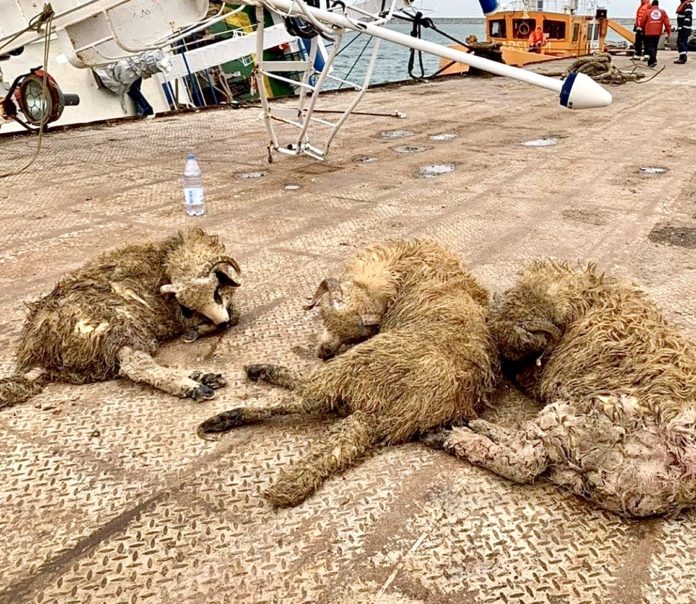
After More Than 14,000 Sheep Die In Romanian Ship Tragedy, New Report On Live Animal Transports Reveals Why Live Exports Must Be Banned Worldwide
You can help all animals and our planet by choosing compassion on your plate and in your glass. #GoVeg
RELATED ARTICLES
Pressure Mounts For Arizona To Ban Dog Pack Hunting Of Mountain Lions, Bears & Other Critical Species
Conservation groups have submitted a petition to the Arizona Game and Fish Commission urging a ban on the use of dog packs for hunting...
Help Save Millions Of Lives This Holiday By Choosing Compassion On Your Plate; Adopt A Turkey Today!
As Thanksgiving approaches, we hope you enjoy a warm and safe holiday. We encourage you to make a compassionate choice by leaving animals off...
Giraffes Are One Step Closer To Receiving Vital Endangered Species Act Protections
In response to a petition and subsequent lawsuit by conservation and animal protection organizations, the U.S. Fish and Wildlife Service (USFWS) has proposed listing...
Popular stories
News
Urgent Help Needed To Find The Remaining Five-Week-Old Puppies Who Were Recently Kidnapped In Washington, D.C.
Earlier this week, the Humane Rescue Alliance (HRA) announced that it was seeking the safe return of six vulnerable puppies who need their mother, siblings,...
News
Breaking! World Animal Protection & Four Paws Collaborate To Rescue Nine Captive Bears From Bile Farms In Vietnam
Photos from BEAR SANCTUARY Ninh Binh, Facebook
In the largest bear rescue World Animal Protection has ever supported, nine bears have been saved from three...
News
Queensland, Australia, Passes Stricter Animal Welfare Laws For The First Time In More Than Two Decades
Under Queensland’s first update of animal welfare laws in more than two decades, offenders will face up to three years in prison if they breach...


